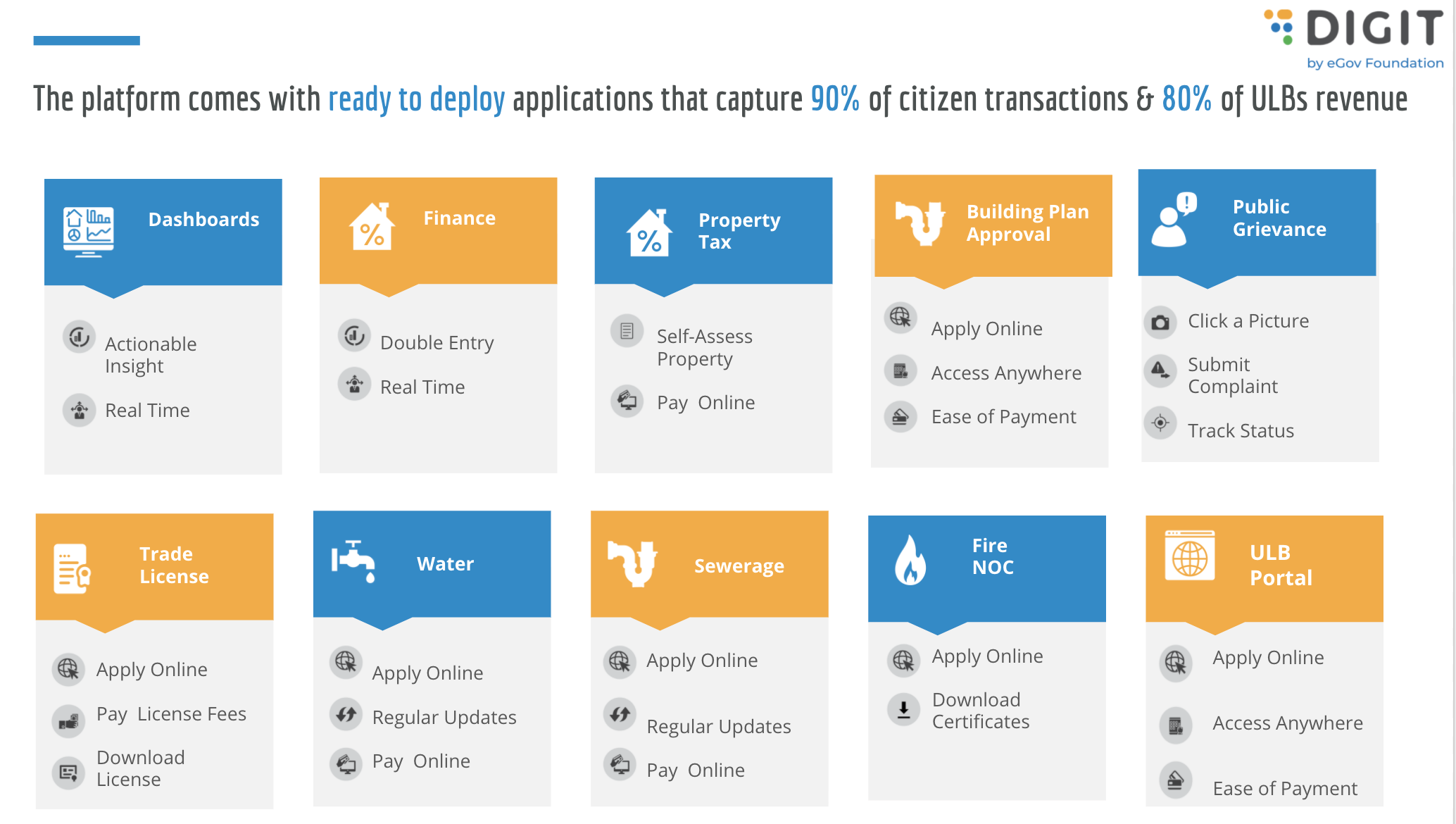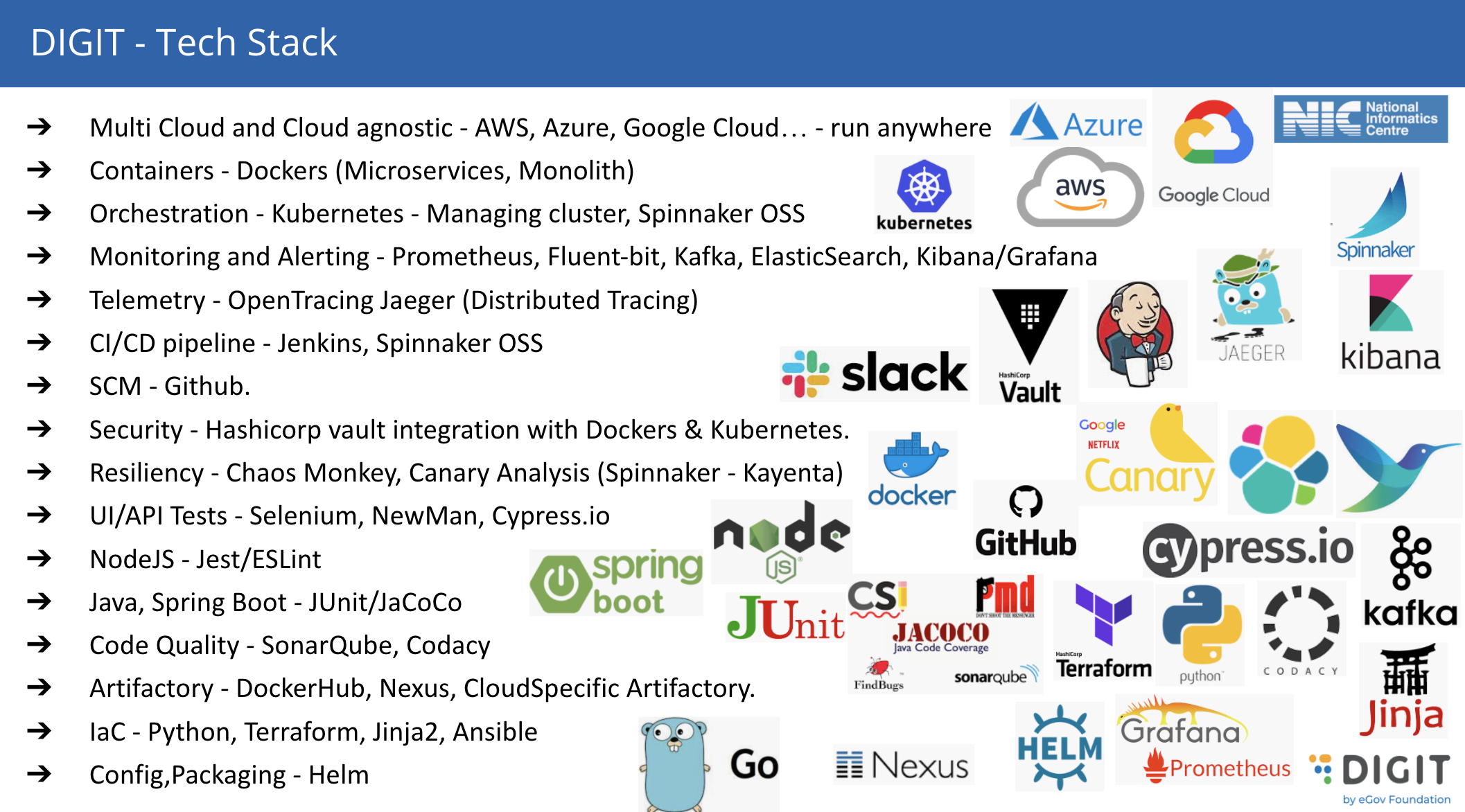DIGIT is a set of Open APIs, services, and reference implementations, setup as a public good, to allow government entities, businesses, startups, and civil society to use a unique digital Infrastructure and build solutions for urban India at a large scale. It provides a set of open standards, specifications and documentation to create a level playing field and enable ecosystem players to innovate on the stack. As a public good, the platform is provided without profit or restriction to all members of society.
DIGIT focuses on inclusion and is designed on the principle of enhancing both platform openness and choice for citizens. The platform uses open APIs and standards, creating a powerful framework to drive convergence across the multiple systems currently in use, and to lower the barrier to entry for locally-developed solutions. Keeping in mind that most Indians use the internet through their phones, we follow and advocate a “mobile-first” approach, while supporting multi-channel access to accommodate diverse needs and preferences.
Government departments build several applications to deliver 1200-1600 services to the citizens e.g. Register Property, Pay Property Tax, Get New Water Connection, Change Address etc. At a state government level, there are around 50 to 70 departments - each of whom build 7 to 10 applications each to deliver these services. From citizens perspective, this leads to a discovery nightmare and makes it extremely difficult for them to access these services online. From administrators perspective they are unable to get a complete picture of what services are being delivered and how. This impacts their ability to monitor and continuously improve the service delivery. To address this issue it is being proposed that all existing applications expose a standardized interface (standard APIs, consistent Data across applications and consistent user experience) which can then be leverage to deliver a unified service to the citizens and at the same time provide unified data for the administrators to be able to govern these services. In addition to providing unified services to citizens and unified data to administrators, The proposed unified services platform will also enable existing applications to leverage common re-usable functionalities like payments notifications user authentication etc. Further, it is being proposed that this platform will also provide the ability for market players to leverage the unified APIs to provide last mile services to citizens. For example an application like MyGate should be able to integrate with the property collection APIs of the urban department to collect Property Tax from the citizens.

